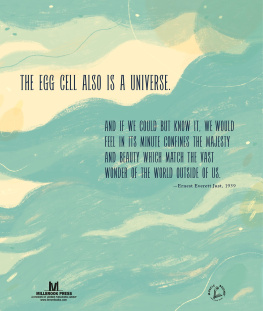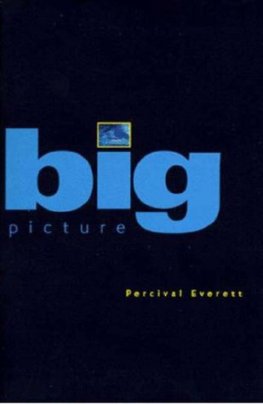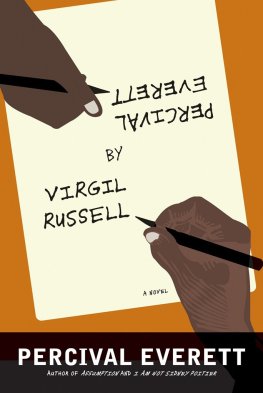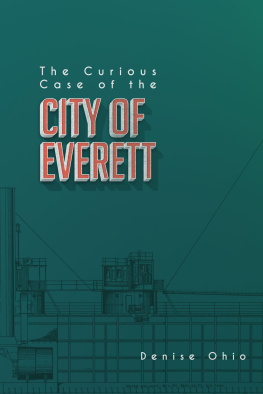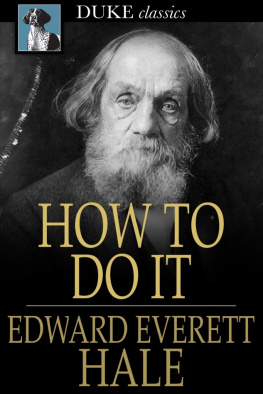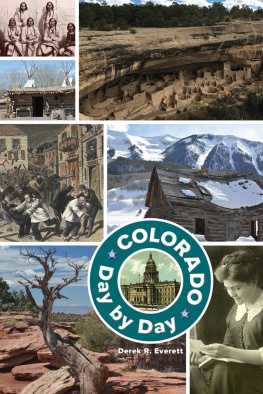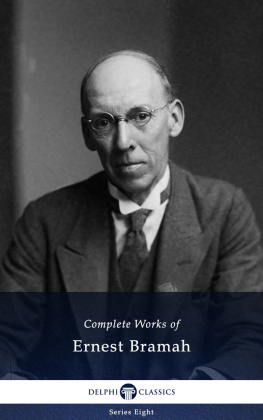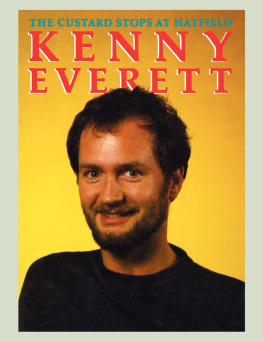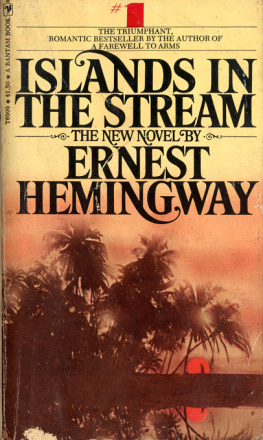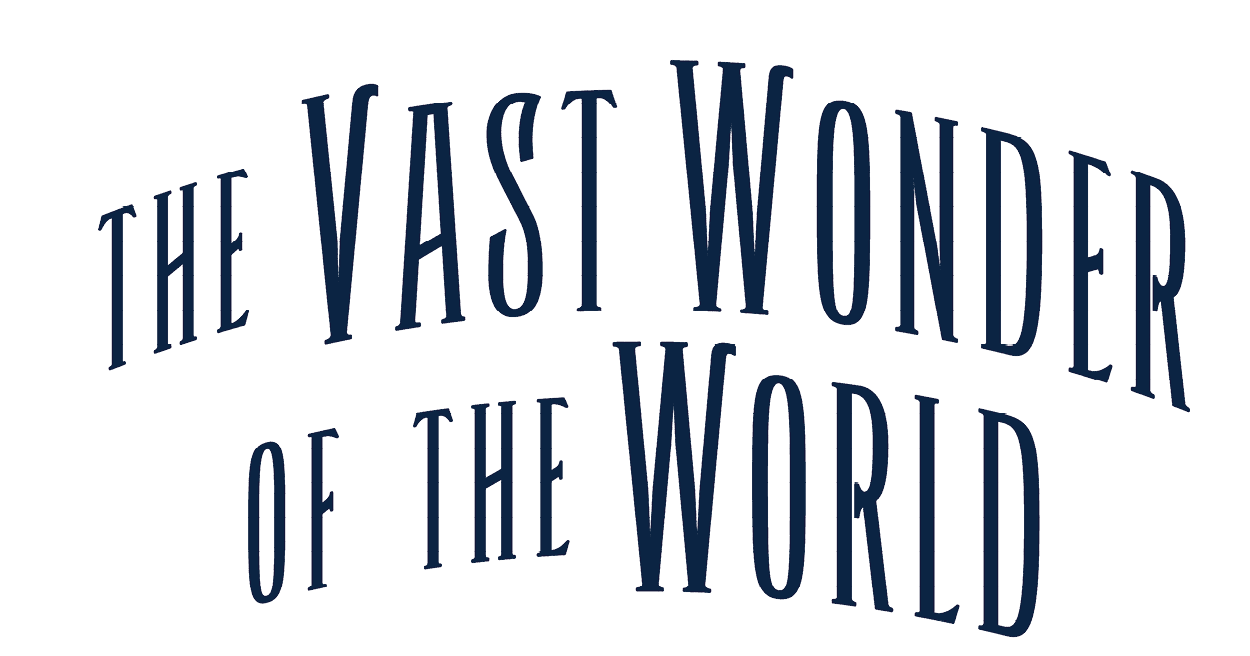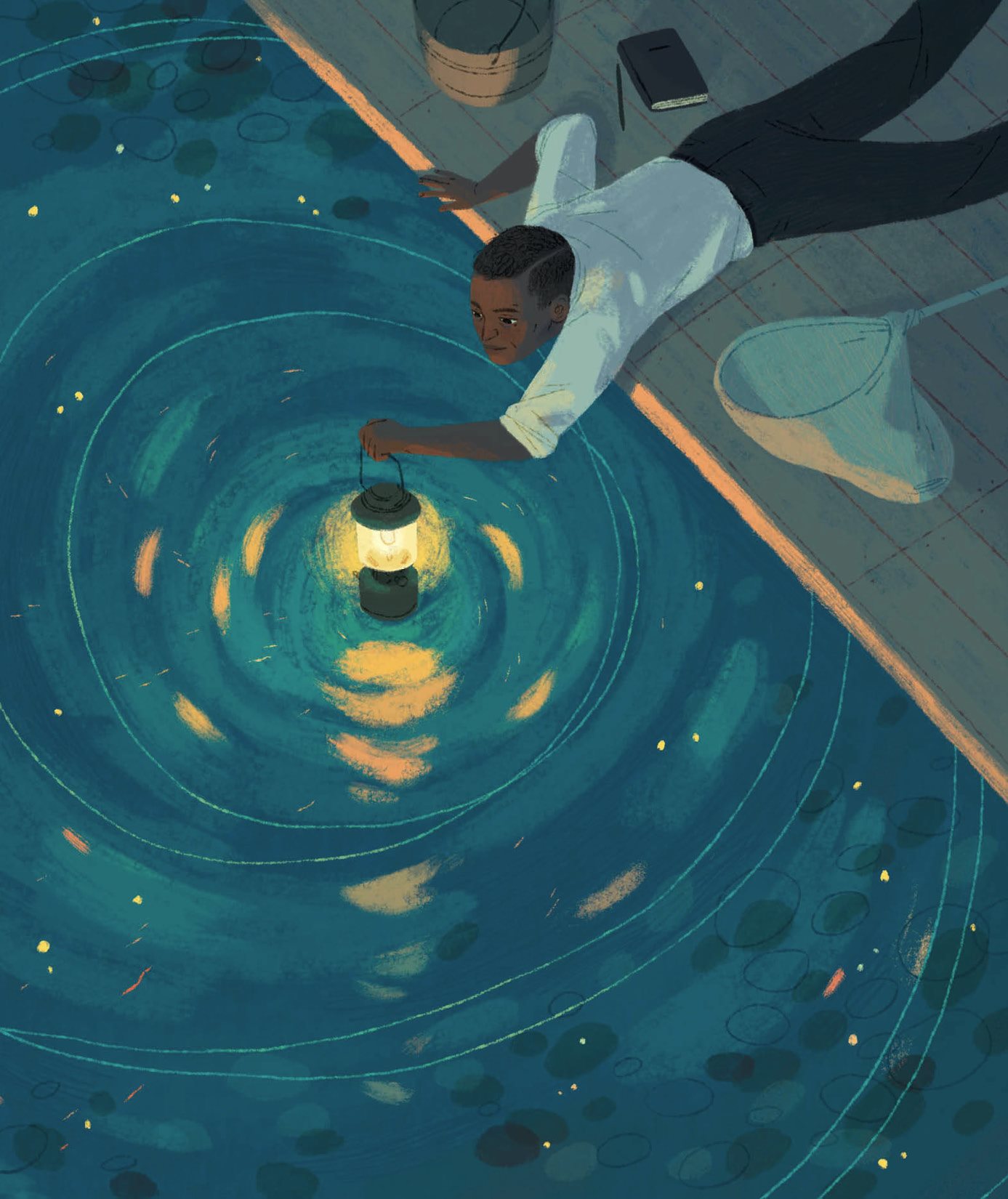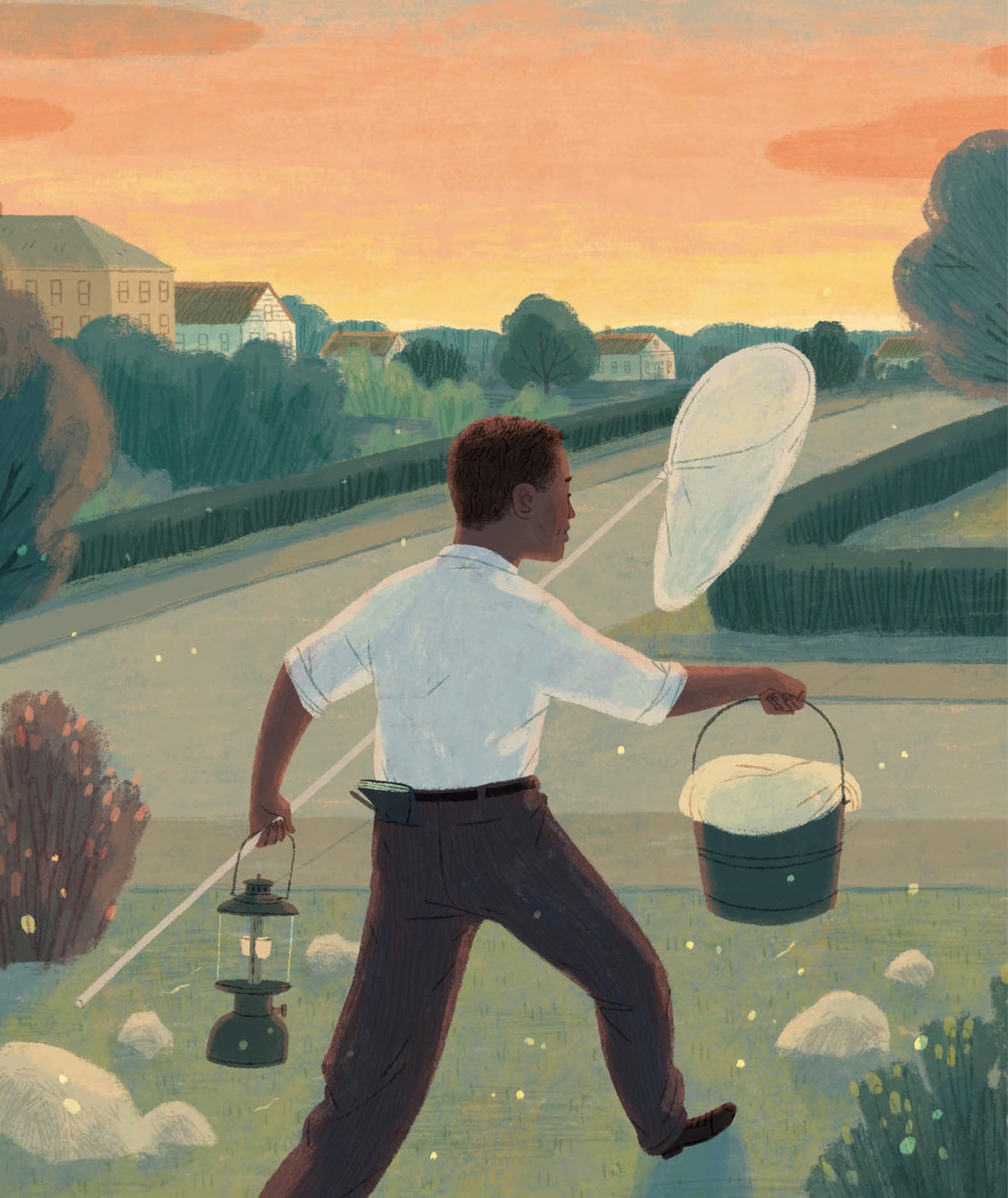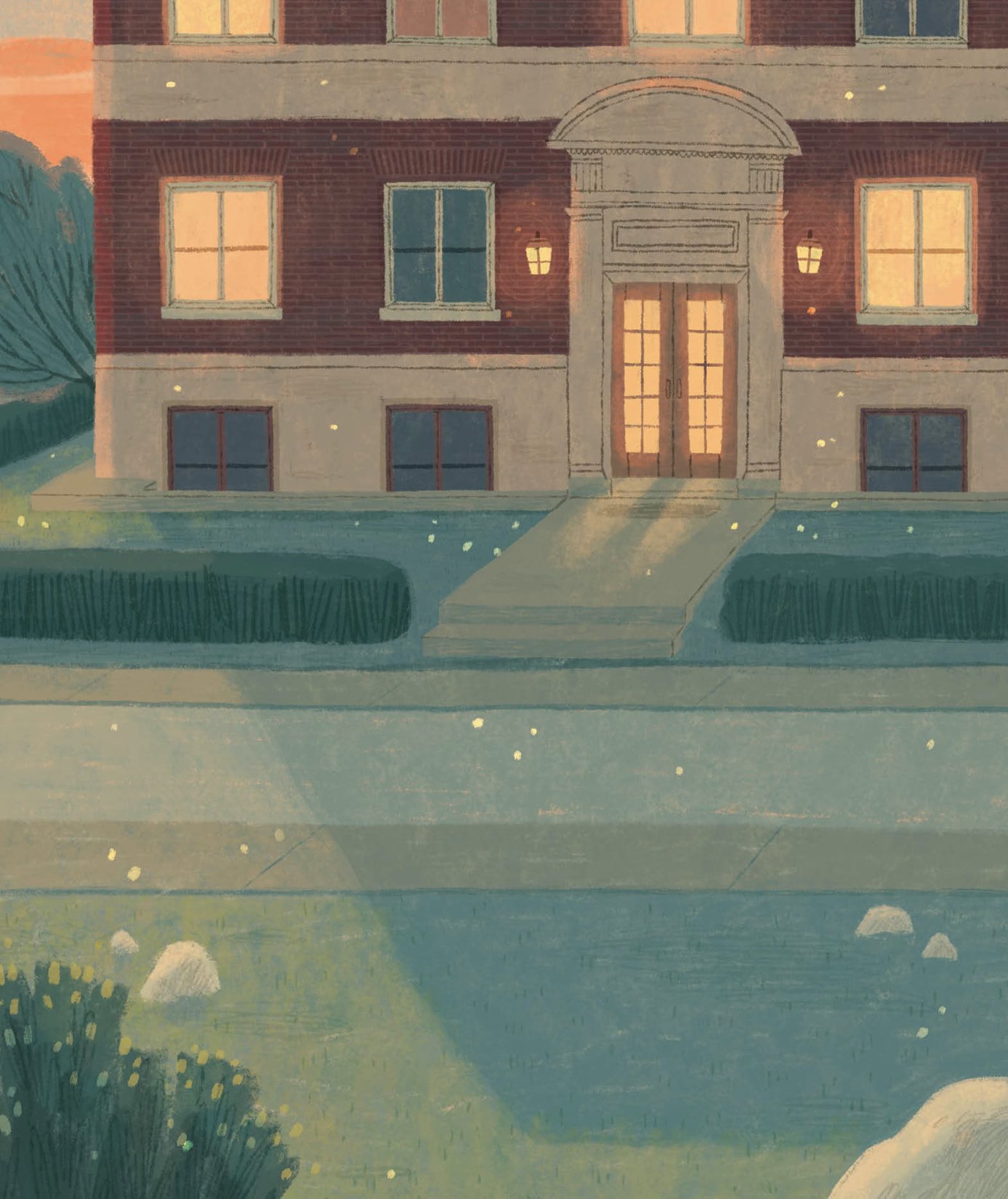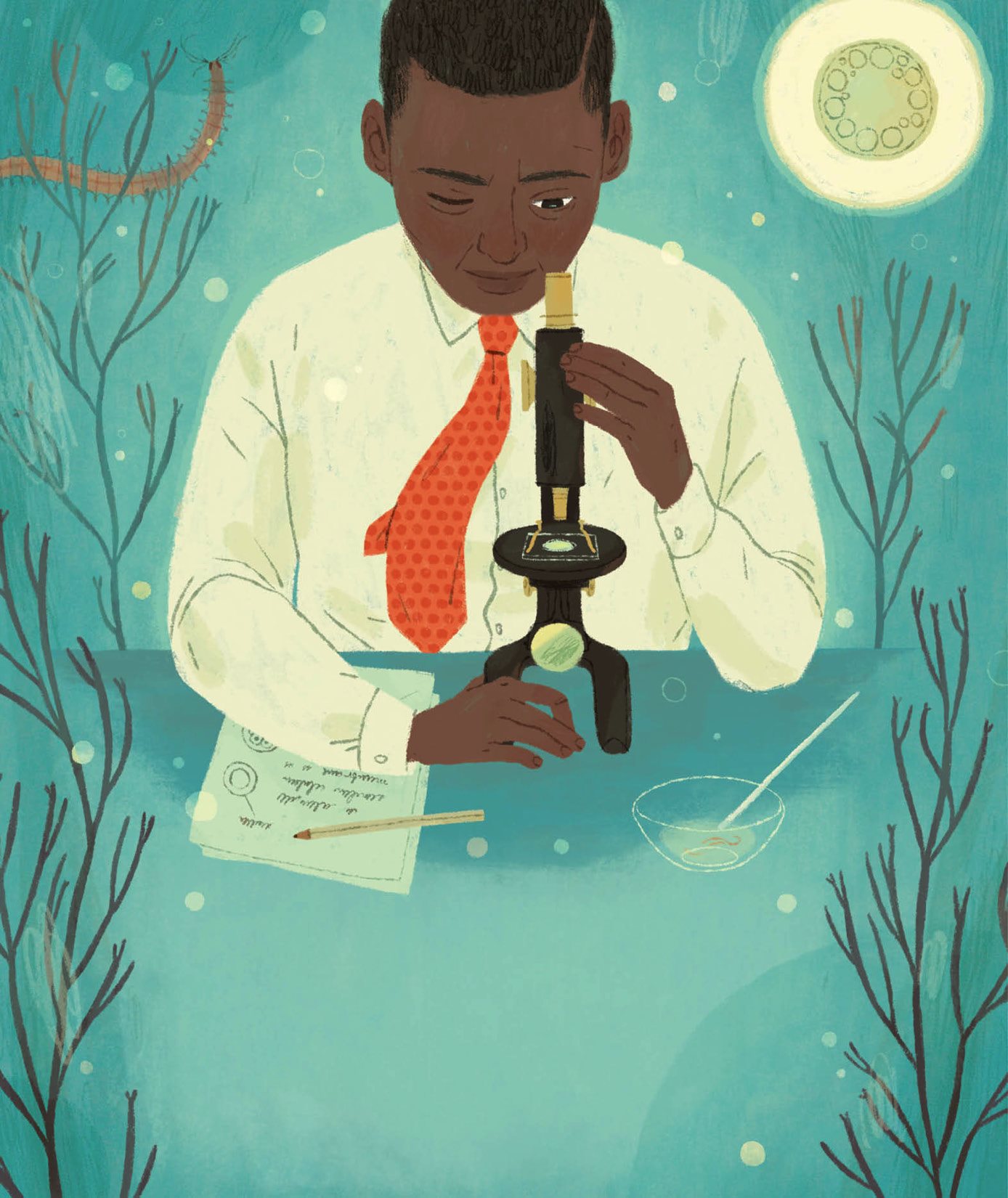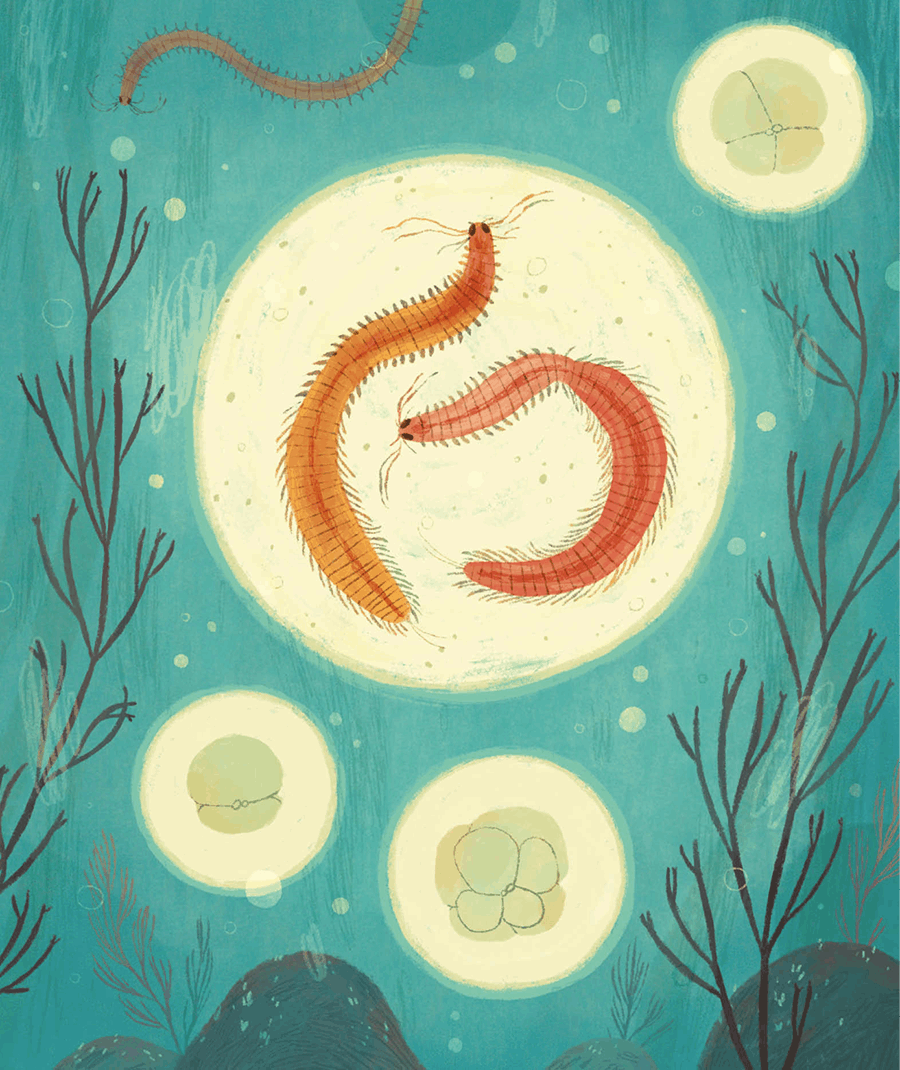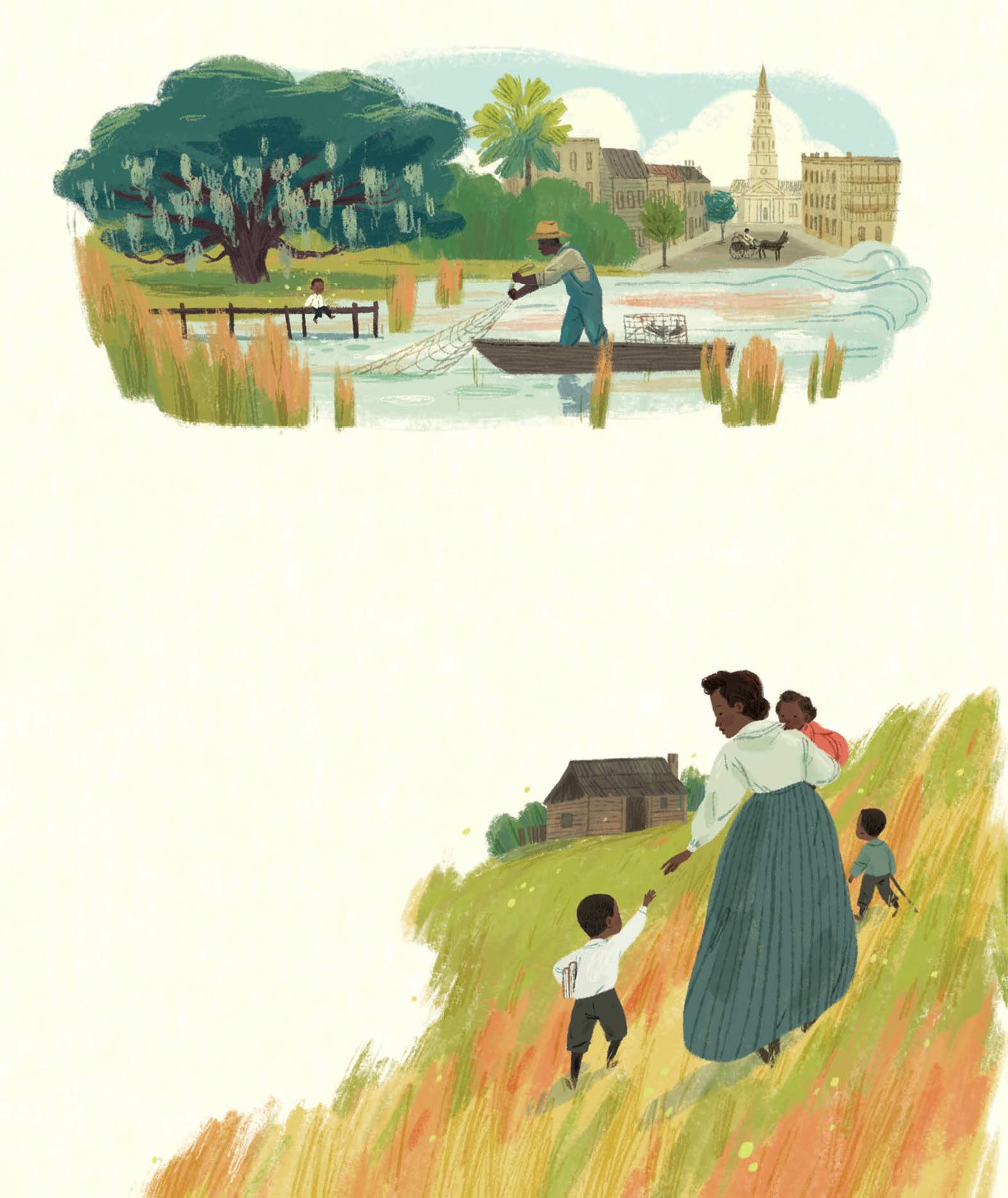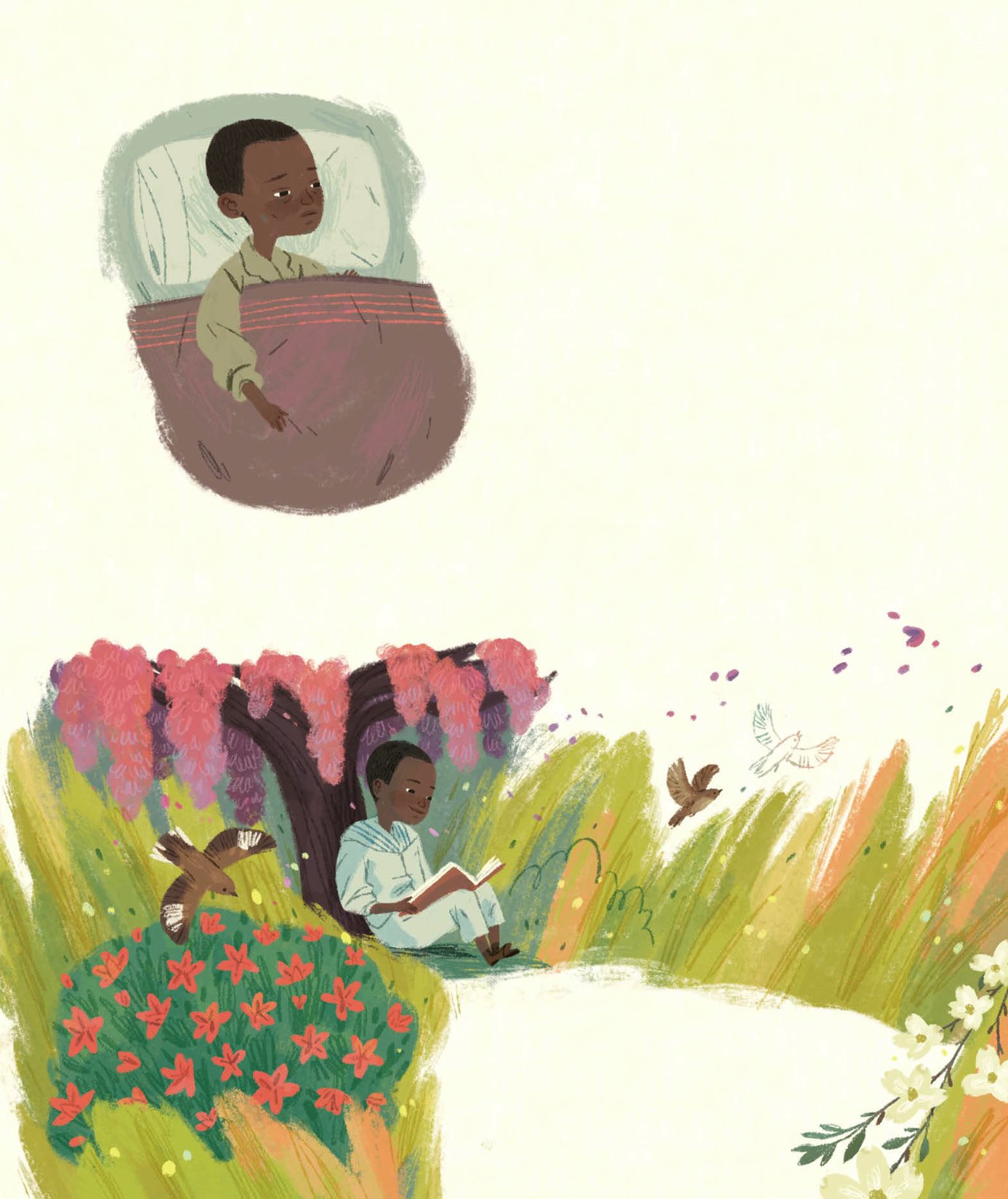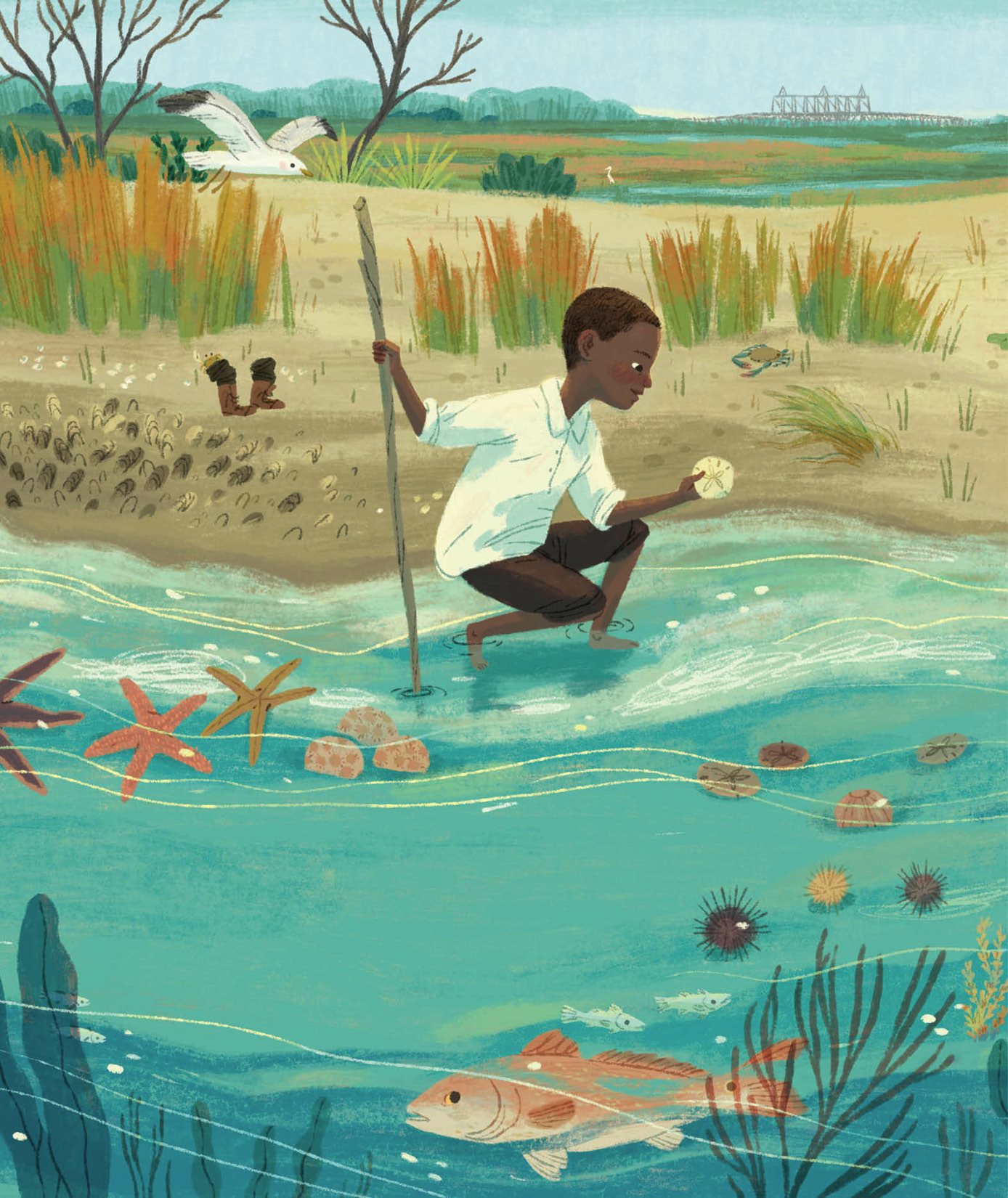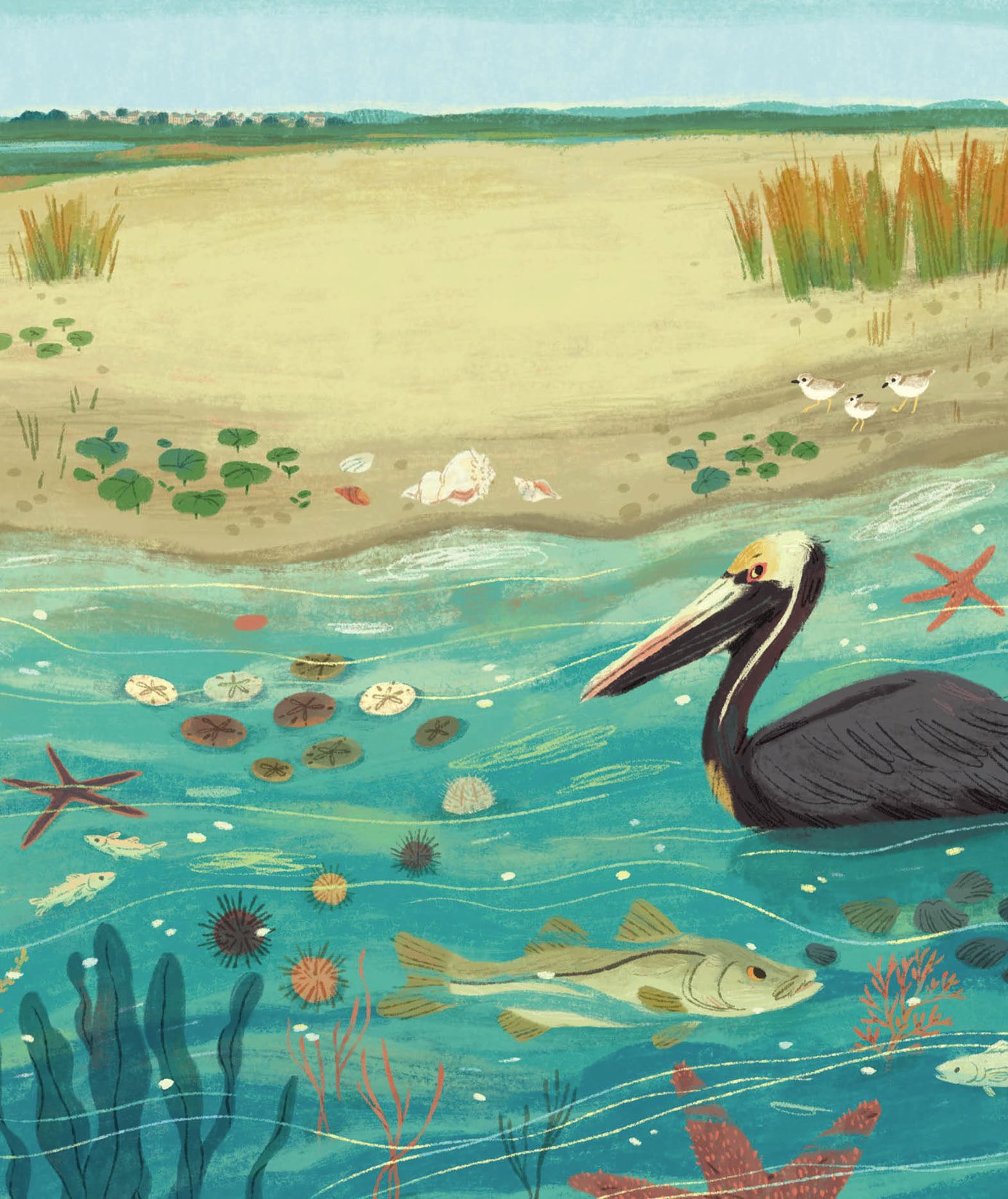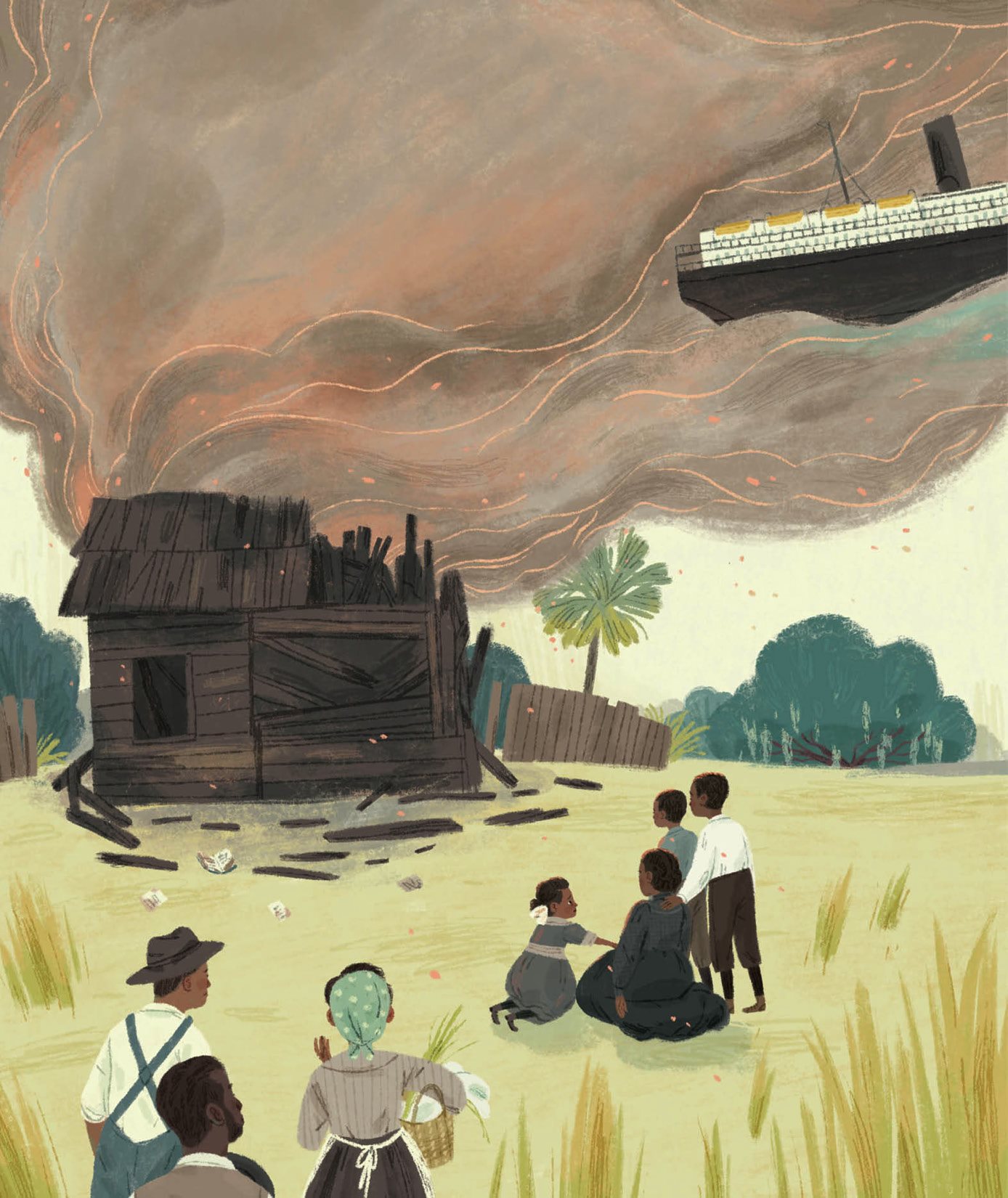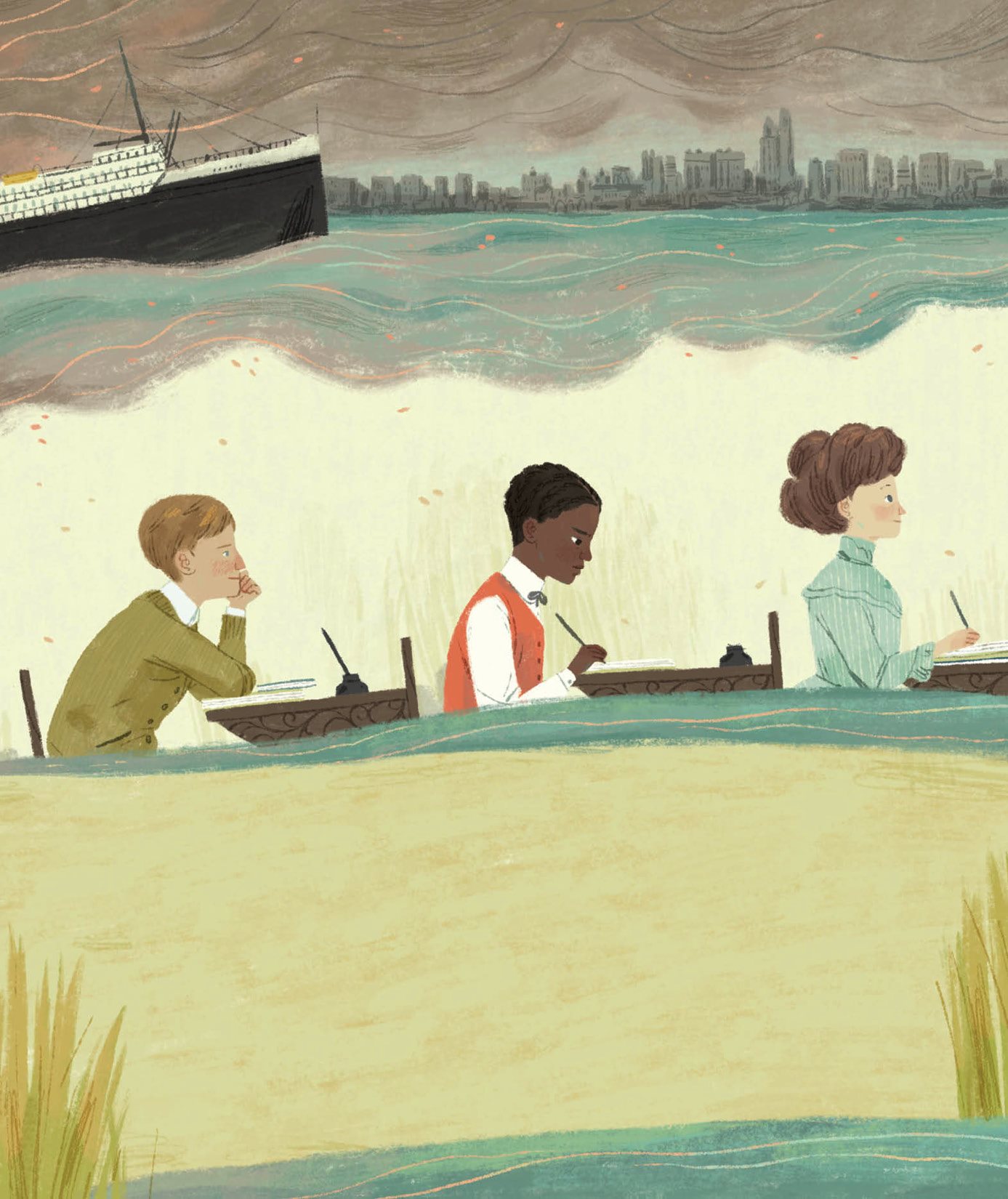Text copyright 2018 by Mlina Mangal
Illustrations copyright 2018 by Luisa Uribe
All rights reserved. International copyright secured. No part of this book may be reproduced, stored in a retrieval system, or transmitted in any form or by any meanselectronic, mechanical, photocopying, recording, or otherwisewithout the prior written permission of Lerner Publishing Group, Inc., except for the inclusion of brief quotations in an acknowledged review.
Millbrook Press
A division of Lerner Publishing Group, Inc.
First Avenue North
Minneapolis, MN 55401 USA
For reading levels and more information, look up this title at www.lernerbooks.com
Photographs in back matter courtesy of Marine Biological Laboratory Archives.
Designed by Lindsey Owens.
Main body text set in Breughel Com 15/18.
Typeface provided by Linotype AG.
The illustrations in this book were created using pencil, paper, and Adobe Photoshop.
Library of Congress Cataloging-in-Publication Data
Names: Mangal, Mlina, author. | Uribe, Luisa, illustrator.
Title: The vast wonder of the world : biologist Ernest Everett Just / Mlina Mangal ; illustrated by Luisa Uribe.
Other titles: Life of scientist Ernest Everett Just
Description: Minneapolis : Millbrook Press, [2018] | Includes bibliographical references. | Description based on print version record and CIP data provided by publisher; resource not viewed.
Identifiers: LCCN 2017046995 (print) | LCCN 2017052258 (ebook) | ISBN 9781541524712 (eb pdf) | ISBN 9781512483758 (lb : alk. paper)
Subjects: LCSH: Just, Ernest Everett, 18831941Juvenile literature. | African American biologistsBiographyJuvenile literature. | BiologistsUnited StatesBiography Juvenile literature. | African American scientistsBiographyJuvenile literature. | ScientistsUnited StatesBiographyJuvenile literature.
Classification: LCC QH31.J83 (ebook) | LCC QH31.J83 M354 2018 (print) | DDC 570.92 [B] dc23
LC record available at https://lccn.loc.gov/2017046995
Manufactured in the United States of America
1-43391-33181-2/22/2018
To my parents, Mel and Nelly Brown M.M.
To Ana and Joe, my favorite scientists L.U.
Mlina Mangal
Illustrated by Luisa Uribe
j Millbrook Press/Minneapolis
Biologist Ernest Everett Just
At twilight, a man lay on a dock, luring marine worms with a lantern. He scooped them out with his net and placed them in a bucket. He couldnt wait to look at them more closely.
He knew the ways of the sea, though he was not a fisherman. His grandfather had built wharves, but he was not a dockworker.
His name was Ernest Everett Just, and he was a scientist.
Ernest was not like other scientists.
He saw the whole, where others saw only parts. He noticed details others failed to see. On the dock at dawn, he wrote poetry.
Back in his laboratory, Ernest examined the marine worms under the microscope. He recorded and sketched their movements. How do their tiny egg cells create new life? he wondered. At a time when few expected a Black man to do so well, Ernest became the world authority on how life begins from an egg.
From early on, Ernest wondered about the world of water around him. Born in Charleston, South Carolina, where rivers and ocean meet, Ernest watched how fishermen netted their catch.
He learned how to read from his schoolteacher mother. After his father died when he was four, he learned how hard life could be.
To find better-paying work, Ernests mother moved their family from the city across the river to the country. Soon after, Ernest caught typhoid fever. He survived, but he had lost his ability to read. He cried alone, struggling to relearn it all.
Then one daya miracle! Ernest could read again. He read as often as he could, letting his imagination roam.
Words came to life as magical spirits.
Ernest attended the school his mother createdin the town she also established. Ernests mother never stopped working. Ernest never stopped observing, even while cooking, cleaning, and watching his younger brother and sister.
He observed how a hurricane damaged their school, how tougher segregation laws restricted African Americans, and how his mothers remarriage changed life at home. What Ernest really loved to observe, though, was nature.
Surrounded by rivers and ocean, marsh and mud, he found plenty to explore.
At thirteen, Ernest left home to attend boarding school in Orangeburg, South Carolina. It was here he published his first poem! When he graduated, Ernest returned home, hoping to begin teaching in his mothers school, but a fire had destroyed it.

